Airbus A321 British Airways Model
Production Time 9 to 10 weeks
Shipment is by FedEx, UPS or DHL International Express Courier with a normal door-to-door delivery time worldwide of within 2-3 business days after dispatch. Due to the current volatility of world fuel prices, the amount mentioned here is our best estimate for DHL and UPS and may be subject to change at the time of shipping.

Product statistics
Length: 17 Inches (43.2 Centimeters)Wingspan: 13.70 Inches (34.8 Centimeters)
Height: 4.5 Inches (11.4 Centimeters)
Scale: 1:103
$239.50
Manufacturer: Airbus Industries
Production Time 9 to 10 weeks
-
United States dollar ($)
-
Pound sterling (£)
-
Euro (€)
-
Australian dollar ($)
-
Canadian dollar ($)
-
Singapore dollar ($)
-
Swiss franc (CHF)
-
Japanese yen (¥)
-
Danish krone (kr.)
-
Hong Kong dollar ($)
-
Norwegian krone (kr)
-
Swedish krona (kr)
General Product Description
Our ReplicaHangar Airbus A321 British Airways Model exhibits unique, unrivaled quality and detailed design to come as close as possible to the accuracy of the actual plane. It comes as standard with a robust, durable base or stand which is available in a variety of different finishes designed to match your own personal requirements including solid wood, wood with polished metal supports or adjustable wood wall mount and will be ready within about 9-10 weeks from placement of order.
The Airbus A321 British Airways Model is made of the finest kiln dried renewable mahogany wood (commonly known as Lauan or Meranti) which has undergone many stages of carving and meticulous and careful sanding giving the beautiful finished museum quality masterpiece. Many collectors and model connoisseurs demonstrate their preference for genuine handmade and hand painted mahogany wood models rather than plastic or die cast (diecast) alternatives due to the overall look and totally different feel of the item - we trust you will find the same. We can, however, if required produce the same model in Solid Cast Resin so just click and contact us us for further information. Our craftsmen and gifted artisans ensure that our finely handcrafted model airplanes match the precise blueprint details of the original aircraft. The paint scheme, markings and parts are closely matched, reflecting the original aircraft. This stylish top-quality desktop replica model will surely enthrall anyone who receives this as a gift and for sure one of the most appropriate and desirably collectable gifts for any aviation enthusiast and avid aircraft collector whilst also displaying a perfect resemblance to the actual aircraft.
If you require we can also make the Airbus A321 British Airways Model in any other airline, private livery or colour scheme you require and if necessary in a different size or scale. Just click here to contact us with a description or photographs of what you require, and we will let you have a quotation for the necessary customization by return email. We can also make bespoke scale replicas of any other private / civil commercial airliner or airliners, helicopter, glider, gliders with engines, military jet, warplane jets, propeller warplanes, biplane, triplane, tail fin, spacecraft, rocket or NASA model you require in any airline, military or civilian livery or colors. We also produce model airships, blimp, dirigible, blimps, boat and ship collectibles. Wall plaque or seal for military, government or private customers. Again, by clicking here to contact us just let us know exactly what you need.
The Airbus A320 family of short- to medium-range commercial passenger airliners are manufactured by Airbus. Family members include the A318, A319, A320, and A321, as well as the +ACJ business jet+..
First delivered in 1988, the A320 pioneered the use of digital fly-by-wire flight control systems in a commercial aircraft. With more than 3,700 aircraft of the A320 family built, it is the second best-selling jet airliner family of all time after its primary competition, the Boeing 737.
Variants
The A320 has given rise to a family of aircraft which share a common design but are slightly smaller (the A319), significantly smaller (the A318), or slightly larger (the A321). Passenger capacity ranges from 100 to 220. They compete with the Boeing 737, 757-200, and 717. All have the same pilot type-rating.
Technically, the namequot;A320 quot; only refers to the original mid-sized aircraft, but it is often informally used to indicate any of the A318/A319/A320/A321 family. All variants are able to be +ETOPS+. (Extended-range Twin-engine Operational Performance Standards) certified.
+A320+.
The A320 series has two variants, the +A320-100+. and +A320-200+.. Only 21 A320-100s were ever produced; these aircraft, the first to be manufactured, were delivered only to +Air Inter+. (an airline later acquired by +Air France+.) and +British Airways+. (as a result of an order from British Caledonian Airways made prior to its acquisition by British Airways). The A320-200 features wingtip fences and increased fuel capacity over the A320-100 for increased range; other than that differences are minimal. The last 5 A320-100 aircraft, operated by British Airways, were disposed of at the end of 2007.
Typical range with 150 passengers for the A320-200 is about 2,900 nautical miles (5,400 km). It is powered by two CFMI CFM56-5 or IAE V2500 with thrust ratings between 25,500 to 27,000 pounds force (113 kN to 120 kN).
The direct Boeing competitor is the 737-800.
+A319+.
The A319 is a shortened, minimum change version of the A320. With virtually the same fuel capacity as the A320-200, and fewer passengers, the range with 124 passengers in a two-class configuration extends to 3,600 nautical miles (6,900 km), the highest in its class. The A320 and A319 are the most popular variants of the A320 family. In 2003 easyJet took delivery of A319s with smaller galleys (as easyJet does not serve meals) and 156 seats in a single class configuration. To satisfy evacuation regulations, additional over-wing exits were included.
According to the New York Time, the A319 was introduced at the request of Steven Udvar-Hazy.
With jet fuel prices rising dramatically, Northwest Airlines is replacing McDonnell Douglas DC-9 aircraft it has had in service for decades, because the A319 is 27% more fuel efficient than the DC-9.
The direct Boeing competitor is the 737-700.
The large easyJet order of 120 A319s plus 120 options was among the biggest aircraft sales deals in recent times, rivaled only by chief competitor Ryanair’;s order for Boeing 737 aircraft.
It is powered by the same types of engine as the A320. JAA certification and service entry, with +Swissair+., took place in April 1996.
+A319CJ+.
This is the corporate jet version of the A319. It incorporates extra fuel tanks which are installed in the cargo compartment giving a range of 6,500 nautical miles (12,000 km). Upon resale the aircraft can be reconfigured as a standard A319 by removing its extra tanks, thus maximizing its resale value. It is also known as the ACJ, or +Airbus Corporate Jet+..
The A319CJ is used by the Escadron de transport, d’;entranement et de calibrage which is in charge of transportation for France’;s officials and was also ordered by the Flugbereitschaft of the Luftwaffe for transportation of Germany’;s officials. Since 2003, an ACJ is the main presidential aircraft of Brazil, Venezuela, Thailand, Czech Republic, and Malaysia.
The aircraft seats up to 39 passengers but may be outfitted by the customers into any configuration. Daimler AG and Reliance Industries are among its users. The A319CJ competes with other corporate jets such as the Gulfstream V, the Boeing 737-700 based Boeing Business Jet (BBJ), and Bombardier’;s Global Express. It is powered by the same engine types as the A320.
+A319LR+.
The A319LR is a standard A319 that incorporates some features and additional fuel tanks of the A319CJ. Airbus offers it in a standard airline layout, although many customers operate it in an all-business class layout with 48 seats, specifically tailored for exclusive business class services on intercontinental routes. The A319LR, compared to the +A319CJ+., has four auxiliary fuel tanks instead of six. Typical range is 4,500 nautical miles (8,300 km).
+Lufthansa+., +KLM+., +Swiss International+. and +Air France+. operate a premium business service between Europe and the USA using a fleet of A319LRs operated by the +French Aero Services+. and the +Swiss PrivatAir+.. However, +Qatar Airways+. fit their A319LRs with standard seatings with 110 seats. Air France operates the A319LR in a reduced density layout and flies it to the Middle East and central Asia.
The +Australian Antarctic Division+. uses an A319-115LR aircraft, operated on their behalf by +Skytraders+., to provide an intercontinental link from Hobart, in Tasmania, to an ice runway near their research station at Casey on the Antarctic continent. Each flight carries up to 40 passengers and up to 6 tonnes of cargo.
The closest Boeing equivalent is the 737-700ER which has a maximum range of 5,510 nautical miles (10,200 km).
+A321+.
The A321 is a minimum change stretch of the A320.
The A321 program was launched in November 1989 and the first development aircraft first flew on 11 March 1993. European certification was awarded in December that year.
Compared with the A320 the +A321′;s+. major change is the stretched fuselage, with forward and rear fuselage plugs totalling 6.93m (22ft 9in) (front plug immediately forward of wing 4.27m/14ft, rear plug directly behind the wing 2.67m/8ft 9in).
Other changes include strengthening of the undercarriage to cope with the higher weights, more powerful engines, a simplified and refined fuel system and larger tires for better braking. A slightly modified wing with double slotted flaps and modifications to the flight controls allows the A321′;s handling characteristics to closely resemble the A320′;s. The A321 features an identical flightdeck to that on the A319 and A320, and shares the same type rating as the smaller two aircraft.
The basic A321-100 features a reduction in range compared to the A320 as extra fuel tankage was not added to the initial design to compensate for the extra weight. To overcome this Airbus launched the longer range, heavier A321-200 development in 1995 which has a full-passenger transcontinental US range. This is achieved through higher thrust engines (V2533-A5 or CFM56-5B3), minor structural strengthening, and 2900 litres (766US gal/638Imp gal) greater fuel capacity (with the installation of an ACT additional centre tank).
The A321-200 first flew from Daimler Benz (later DaimlerChrysler, now Daimler AG) Aerospace’;s Hamburg facilities in December 1996.
+A318+.
TheA318, also known as thequot;+Mini-Airbus+. quot; orquot;+baby bus+. quot;, is the smallest member of the A320 family, and the smallest Airbus of any kind. It originated from the AVIC and Airbus Industrie Asia cooperation program AE31X2526. During development, it was known as thequot;A319M3, quot; thus indicating its history as a direct derivative of the A319.quot;+M3+. quot; indicatesquot;minus three fuselage frames. quot; The aircraft is six metres shorter and 14 tonnes lighter than the A320. To compensate for the reduced moment arm it has a larger vertical stabilizer, making it 80 centimetres taller than the other A320 variants. Pilots who are trained on the other variants may fly the A318 with no further certification, since it features the same type rating as its sister aircraft.
The A318 has a passenger capacity of 109 in a two-class configuration. It is intended to replace early Boeing 737 and Douglas DC-9 models, though it is also a rival to the 737-600. Boeing also offered their 717 aircraft as a competitor, although it was suitable primarily for regional routes and did not have the A318′;s range capabilities.
The A318 is available with a variety of different maximum take-off weights (MTOW) ranging from a 59 tonne, 2,750 km (1,500 nautical mile) base model to a 68 tonne, 6,000 km (3,240 nautical mile) version. The lower MTOW enables it to operate regional routes economically whilst sacrificing range and the higher MTOW allows it to complement other members of the A320 family on marginal routes. The lighter weight of the A318 gives it an operating range 10% greater than the A320, allowing it to serve some routes that the A320 would be unable to: London-New York, Perth-Auckland and Singapore-Tokyo, for instance. Its main use for airlines, however, is on short, low-density hops between medium cities.
During the design process, the A318 ran into several problems. The first one was the decline in demand for new aircraft following the September 11, 2001 attacks. Another one was the new Prattamp; Whitney turbofan engines, which burned more fuel than expected: by the time CFMI had a more efficient engine ready for market, many A318 customers had already backed out, including +Air China+. and British Airways. America West Airlines, which had selected the +Prattamp; Whitney+. engines, amended its A318 orders, opting instead for A319 or A320 aircraft. Trans World Airlines canceled a significant order for 50 A318 after being acquired by American Airlines, which does not operate any A320 family aircraft (although neither did TWA when the order was originally placed). While Airbus was hoping to market the A318 as a regional jet alternative, laws in both the U.S. and Europe have kept it in the same class as larger aircraft for calculating landing fees and the like, so regional operators have avoided it.
It is powered by two CFM56-5 or Prattamp; Whitney PW6000 with thrust ranges between 21,600 to 23,800 lb (10,800 kg)f (96 to 106 kN) thrust. Launch customers Frontier Airlines and Air France took deliveries in 2003, with Frontier receiving their models in July of that year. The price of an A318 ranges from $39 to $45 million, and operating costs are around $3,000 for a 500 nm (926 km) flight.
While designing the A318, Airbus included a number of technology upgrades, many of which have been integrated into the rest of the A320 family. Some are also finding their way to the A380 jumbo aircraft. These upgrades include:
A new touchscreen LCD panel at the flight attendants’; stations in the cabin, to simplify access to environmental and communications controls
New cabin lighting based on LED light sources, instead of halogen and fluorescent bulbs
Electrically powered backup braking systems, improving upon the older design using reserve hydraulic pressure
The use of laser beam welding during construction, used to fasten floor stringers to the lower fuselage shell. Laser welding eliminates the need for rivets to secure the joint, which saves weight, and is faster, saving on assembly time
Orders for the A318 have been quite slow, but about 50% better than for its direct competitor the B737-600. Airbus had received 100 orders (14 May 2007) for this model compared to 69 for the B737-600. The sales pace has been influenced by the strong sales of the Bombardier CRJ900 and Embraer E-Jets series. Notable A318 customers were Air France, 18; +Frontier Airlines+., 10 (+ 1 order); LAN Chile, 20 orders; and Mexicana, 10 orders. In October 2006 an A318 was successfully tested at London City Airport for steep approach compatibility, which will allow operators to serve airports constrained by noise restrictions, tall buildings or difficult terrain.27. British Airways has ordered two A318 aircraft to operate from London City Airport to New York Kennedy Airport. They will be configured in all business class seating.
+A318 Elite+.
On 10 November 2005 Airbus announced the A318 Elite. The Airbus A318 Elite is aimed at the medium-range market for flights of up to 4,000 nm (7400 km) range, with a choice of two cabin layouts seating up to 14 and 18 passengers, and will be powered by CFM engines. +Comlux Aviation+. became the launch customer by ordering three A318 Elite aircraft.
+Freighter+.
A programme to convert A320 and A321 aircraft into freighters is being set up by +Airbus Freighter Conversion GmbH+.. Airframes will be converted by EADS EFW in Dresden, Germany, and Zhukovsky, Russia . The launch customer +AerCap+. signed a firm contract on 16 July 2008 to convert 30 of AerCap’;s passenger A320/A321s into A320/A321P2F (passenger to freighter). The first aircraft will be ready in 2011 and serial production is scheduled to begin in early 2012.
+A320 Enhanced+.
A320 Enhanced (or +A320E+.) is the working title for an improved version of the A320, which is planned to be delivered in 2009. The improvements will incorporate engine improvements, an aerodynamic tidy-up, weight savings and a new cabin.
Courtesy Wikipedia
| Weight | 6 kg |
|---|---|
| Dimensions | 17 × 13.70 × 4.5 in |
Be the first to review “Airbus A321 British Airways Model” Cancel reply
Related products
Private & Civilian
Private & Civilian
Private & Civilian
Private & Civilian
Private & Civilian
Private & Civilian
Private & Civilian
Private & Civilian

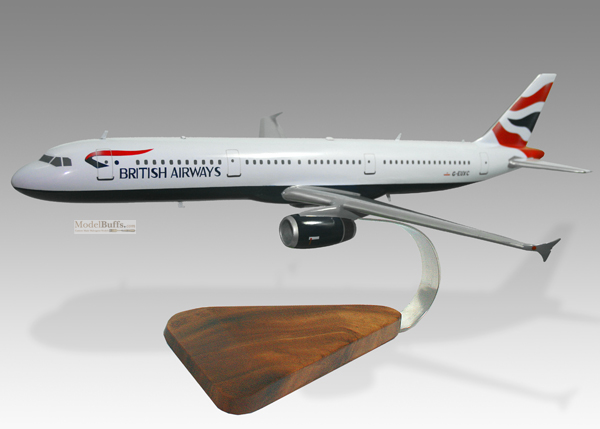
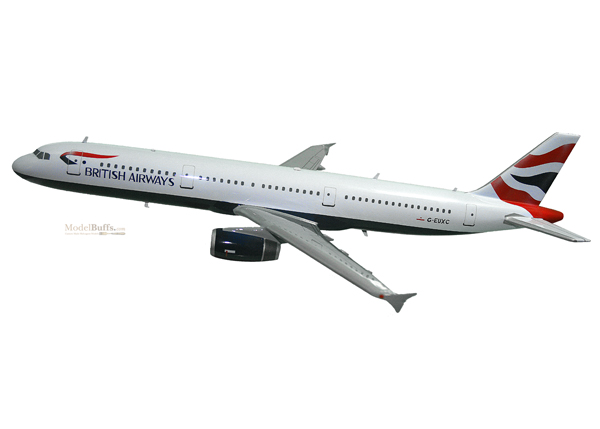
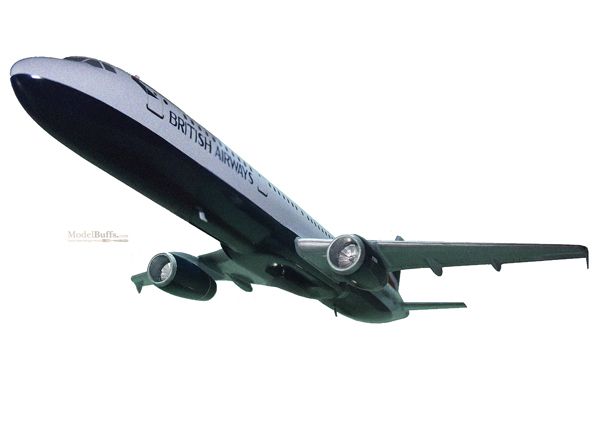
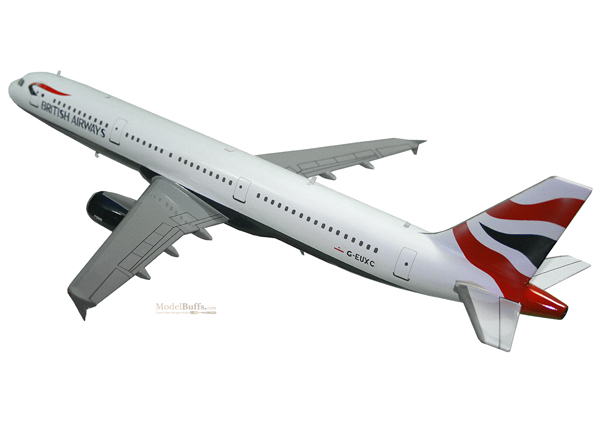
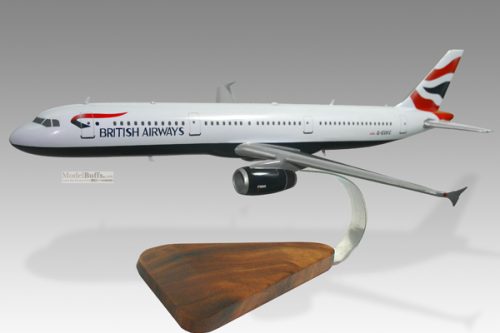
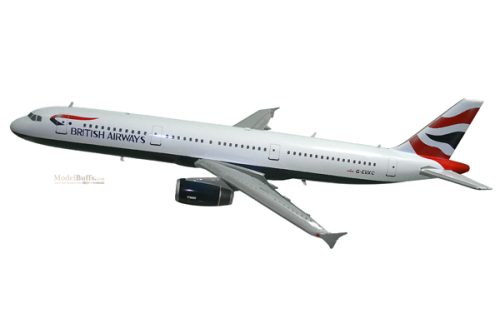
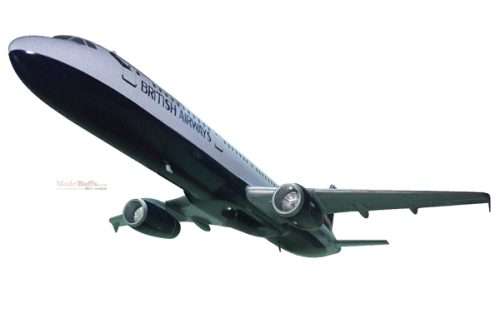
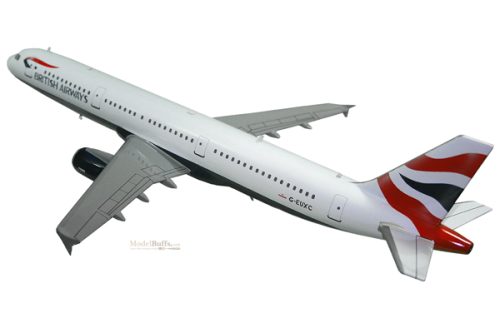
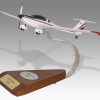
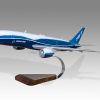
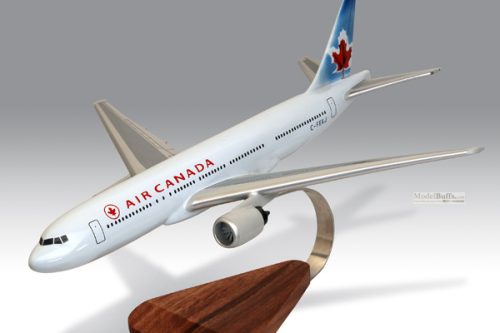
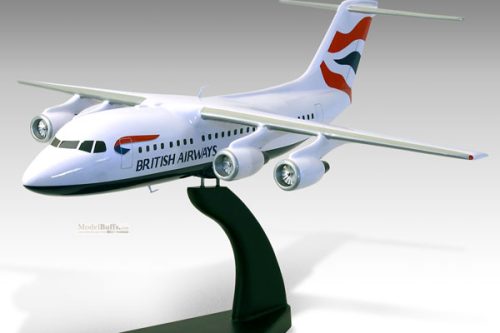
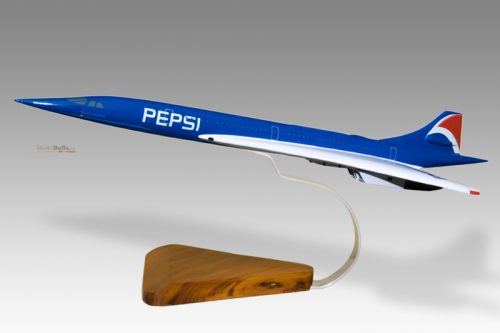
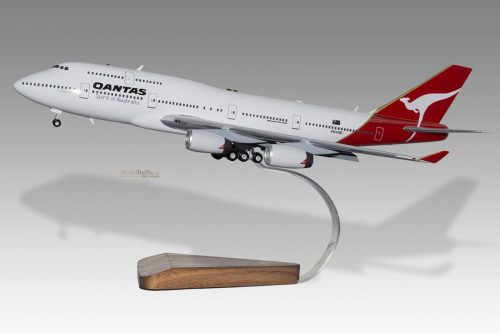
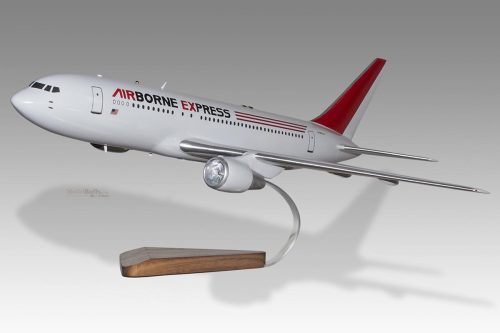
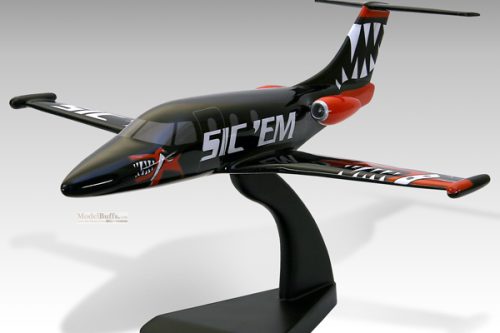
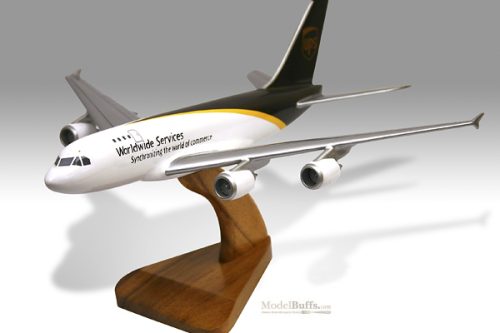
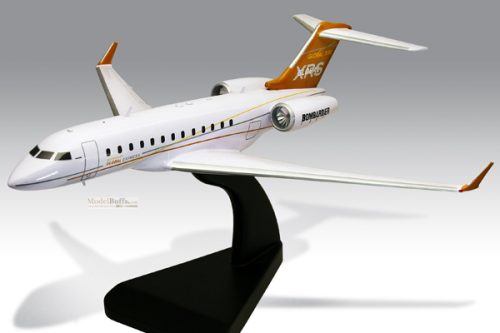
Reviews
There are no reviews yet.